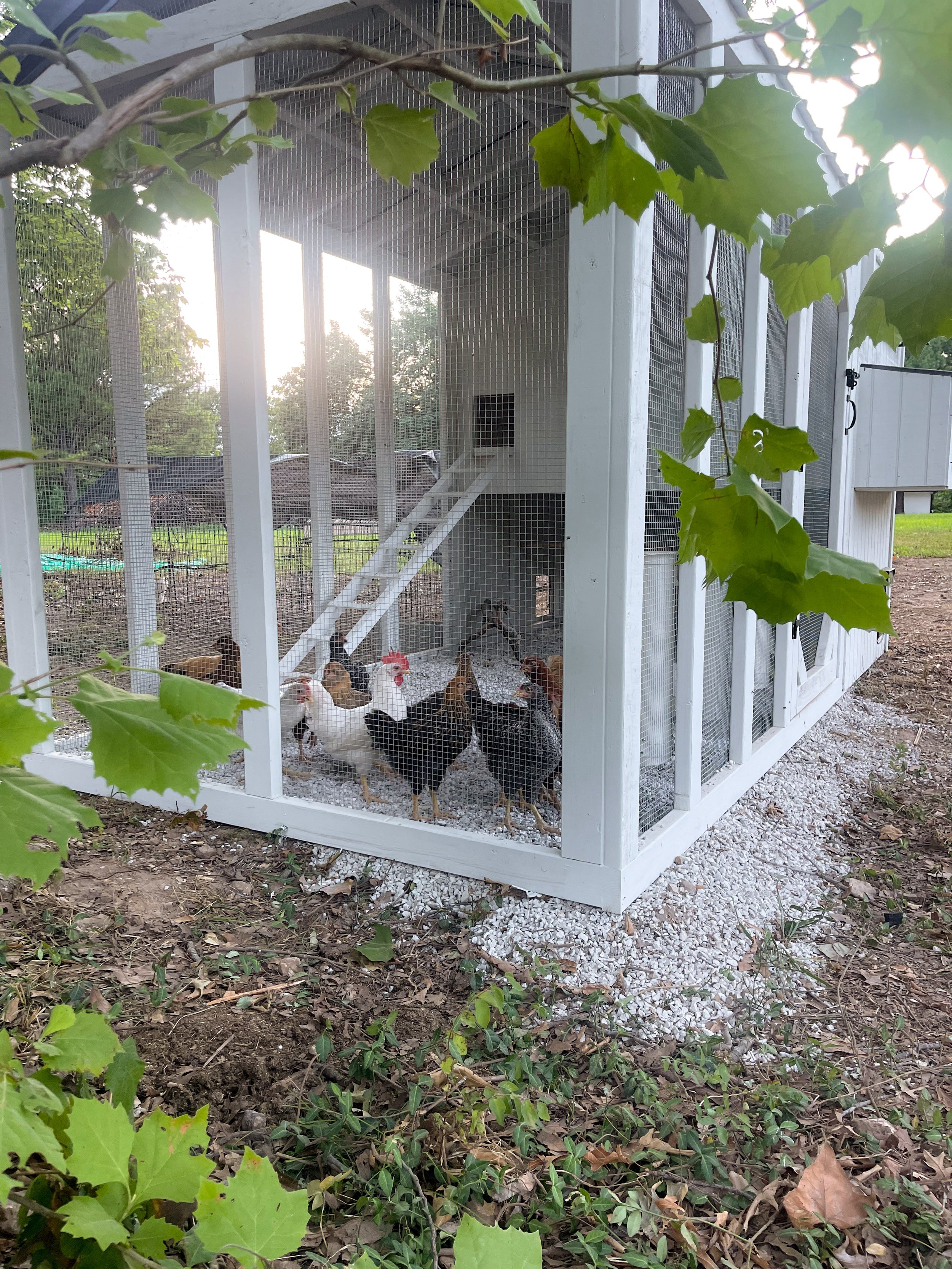Your Guide to Getting Chickens
So, you're ready to take the plunge and become a backyard chicken keeper? Congratulations! Raising chickens can be a rewarding and enriching experience. Here's a step-by-step guide to help you get started:
1. Research and Planning
Local Regulations: The first step is to check your local zoning ordinances. Some municipalities have restrictions on the number of chickens allowed, minimum lot sizes, and even coop requirements.
Space Requirements: Chickens need space to roam and forage. As a general rule, aim for at least 4 square feet of indoor space per bird and 10 square feet of outdoor space.
Housing:
Coop: Invest in a well-ventilated and predator-proof coop. Ensure it provides adequate protection from the elements and has secure roosting bars and nesting boxes.
Run: A secure run will allow your chickens to safely enjoy outdoor time while preventing them from digging up your garden or wandering off.
Breed Selection: Research different chicken breeds. Consider factors like egg production, hardiness, temperament, and appearance. Some popular backyard breeds include Rhode Island Reds, Plymouth Rocks, and Australorps.
Feed and Water: Familiarize yourself with different chicken feed options, including starter feed for chicks and layer feed for adult hens.
2. Obtaining Your Chicks
Local Sources:
Hatcheries: Many local hatcheries offer a wide variety of chicks. You can often choose specific breeds and even sex your chicks (if you prefer hens).
Farmers' Markets: Local farmers' markets may have vendors selling chicks or even adult hens.
Feed Stores: Some feed stores may carry chicks during certain seasons.
Online Sources:
Online Hatcheries: Numerous online hatcheries ship chicks directly to your doorstep.
Considerations:
Age: Consider starting with young chicks (pullets) for a more hands-on experience.
Health: Ensure the chicks appear healthy and alert. Look for bright eyes, clean vents, and no signs of illness.
3. Setting Up Your Coop and Run
Cleanliness: Thoroughly clean and disinfect the coop and run before introducing your chicks.
Bedding: Provide a comfortable and absorbent bedding material such as pine shavings or wood chips.
Feeders and Waterers: Set up feeders and waterers within easy reach of the chicks.
Nesting Boxes: Place nesting boxes in a quiet corner of the coop.
4. Caring for Your Chicks
We can build a custom brooder box in your coop when you order
Brooding: If you're starting with young chicks, you'll need to provide a brooder box with a heat lamp to maintain a consistent temperature.
Nutrition: Feed your chicks a high-quality starter feed and ensure they have access to clean water at all times.
Monitoring: Regularly monitor your chicks for signs of illness or injury.
Socialization: Spend time with your chicks daily to help them become accustomed to human interaction.
5. Introduction to the Outdoors
Gradual Introduction: Gradually introduce your chicks to the outdoors, starting with short periods and increasing the time as they get older.
Supervision: Always supervise your chicks when they are outside to ensure their safety.
6. Ongoing Care
When we install your coop you can opt for advanced predator proofing which prevents predators from digging under
Feeding: Provide a balanced diet of layer feed and supplemental treats like scratch grains.
Water: Ensure clean water is always available.
Coop Maintenance: Regularly clean the coop and replace bedding to maintain a healthy environment.
Predator Protection: Take steps to protect your chickens from predators, such as raccoons, foxes, and hawks.
Health Care: Monitor your chickens for signs of illness and consult with a veterinarian specializing in avian care if necessary.
Raising chickens can be a rewarding and enriching experience. By following these steps and providing your flock with proper care and attention, you can enjoy the benefits of fresh eggs, valuable life lessons, and the satisfaction of raising your own backyard flock.
Disclaimer: This article provides general information and should not be considered professional advice. Always consult with local regulations and experts for specific guidance.



